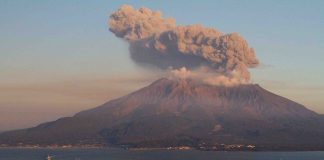The BRICS summit convened in Brazil this week with aspirations of redefining global cooperation, but internal tensions and external pressures underscored the challenges facing the bloc.
Hosted at the Museum of Contemporary Art overlooking Guanabara Bay in Rio de Janeiro, the gathering served as both a diplomatic prelude to November’s COP30 in Belém and a pointed critique of perceived Western retrenchment.
Brazilian President Luiz Inácio Lula da Silva opened proceedings on Sunday by sharply criticising the weakening of multilateral institutions. “Eighty years after the defeat of fascism and the creation of the UN, we have witnessed an unparalleled collapse of multilateralism,” he stated. Lula warned that climate frameworks, trade regimes, and even Brics’ autonomy itself were under threat, as wealthy nations retreat behind protectionist policies and military assertiveness.
Lula’s speech, delivered in the presence of leaders and representatives from the bloc’s 11 member states, denounced both the rising militarisation of global politics and what he termed the “genocide carried out by Israel in Gaza”. He further condemned the US missile strikes on Iran in June and criticised the decision by NATO countries to allocate 5% of GDP to military spending. “It is always easier to invest in war than in peace,” he said. “The fear of a nuclear catastrophe has returned to everyday life.”
The summit comes at a time when Brics leaders see a strategic opening. With President Donald Trump’s administration increasingly focused on an “America First” agenda and levying tariffs on Brics economies, Brazil and its partners sense an opportunity to reposition the bloc as a pillar of a new multipolar order. Collectively, Brics accounts for 40% of the world’s population and GDP, and over half of global greenhouse gas emissions—figures that outpace those of the G7.
Yet the bloc’s internal balance remains lopsided. China’s GDP and carbon output rival those of all other Brics members combined, and its growing geopolitical assertiveness complicates unity. President Xi Jinping’s decision not to attend the summit, his first such absence, raised questions about China’s current level of commitment. No explanation was offered by Beijing.
Russia’s President Vladimir Putin also did not attend in person, joining via video link due to the outstanding International Criminal Court warrant against him. The leaders of Egypt and Iran—Abdel Fattah al-Sisi and Masoud Pezeshkian respectively—were also absent, the latter represented by his foreign minister following recent US and Israeli military action in Iran.
The resulting Rio de Janeiro declaration, issued at the end of the summit’s first day, condemned the military strikes on Iran and Gaza, and criticised trade restrictions. However, the document’s language was tempered. Analysts suggested Brazil was keen to avoid inflaming tensions with Washington ahead of COP30. “There was a general sense of ‘let’s keep this as low key as possible,’” noted Oliver Stuenkel of the Fundação Getulio Vargas.
In the climate domain, the Brics bloc reaffirmed its support for multilateralism and reiterated its commitment to the Paris Agreement. The declaration called for “accessible, timely and affordable” climate finance and endorsed Brazil’s initiative to launch a conservation fund at COP30. However, the question of who would contribute remained unanswered, with appeals made to China, Middle Eastern Brics members, and wealthy Northern states.
Environmental advocacy groups such as Greenpeace called on Brics to fill the vacuum left by US disengagement. “Brics nations must seize this moment and take a decisive stand for people and the planet,” said Anna Cárcamo of Greenpeace Brazil.
Yet despite the rhetoric, key gaps remained. The declaration made no commitment to phasing out fossil fuels, instead noting their “important role” in the global energy mix. With several members—among them Russia, Iran, and Saudi Arabia—being major fossil fuel exporters, the bloc remains divided over energy transition pathways. Meanwhile, criticism was directed at the European Union’s environmental trade measures, including carbon border taxes and deforestation-free certification, which were described as “discriminatory protectionism”.
Calls to reform global governance featured prominently. Brazil, in particular, advocated for changes to the UN system to make it “more democratic, representative, effective and efficient”. This included increasing representation of developing countries in key decision-making bodies. While such reform has long been on the Brics agenda, progress has been limited.
Civil society engagement was conspicuously absent. Media access was restricted, and the summit was held under heavy security, with military vehicles and armed troops stationed throughout Rio. Observers noted a lack of transparency, contrasting with Brics’ stated goal of representing global south interests.
With preparations for COP30 under way, Brazil is positioning itself as a leader on climate diplomacy. But negotiations in Bonn last month suggested that major fault lines persist, particularly over climate finance commitments. The reluctance of wealthy nations to fill funding gaps left by the US is expected to be a central point of contention in Belém.
The Brics summit highlighted the bloc’s ambition to shape a more equitable international order, but also laid bare its internal contradictions. The unity projected in Rio may prove fragile when confronted with divergent national interests, geopolitical crises, and the widening gap between rhetoric and delivery. Whether Brics can evolve into a coherent and influential force in global governance remains an open question.
Read also:
Brazil Hosts G20 Summit to Tackle Hunger Amid Geopolitical Strains and Trump’s Return



